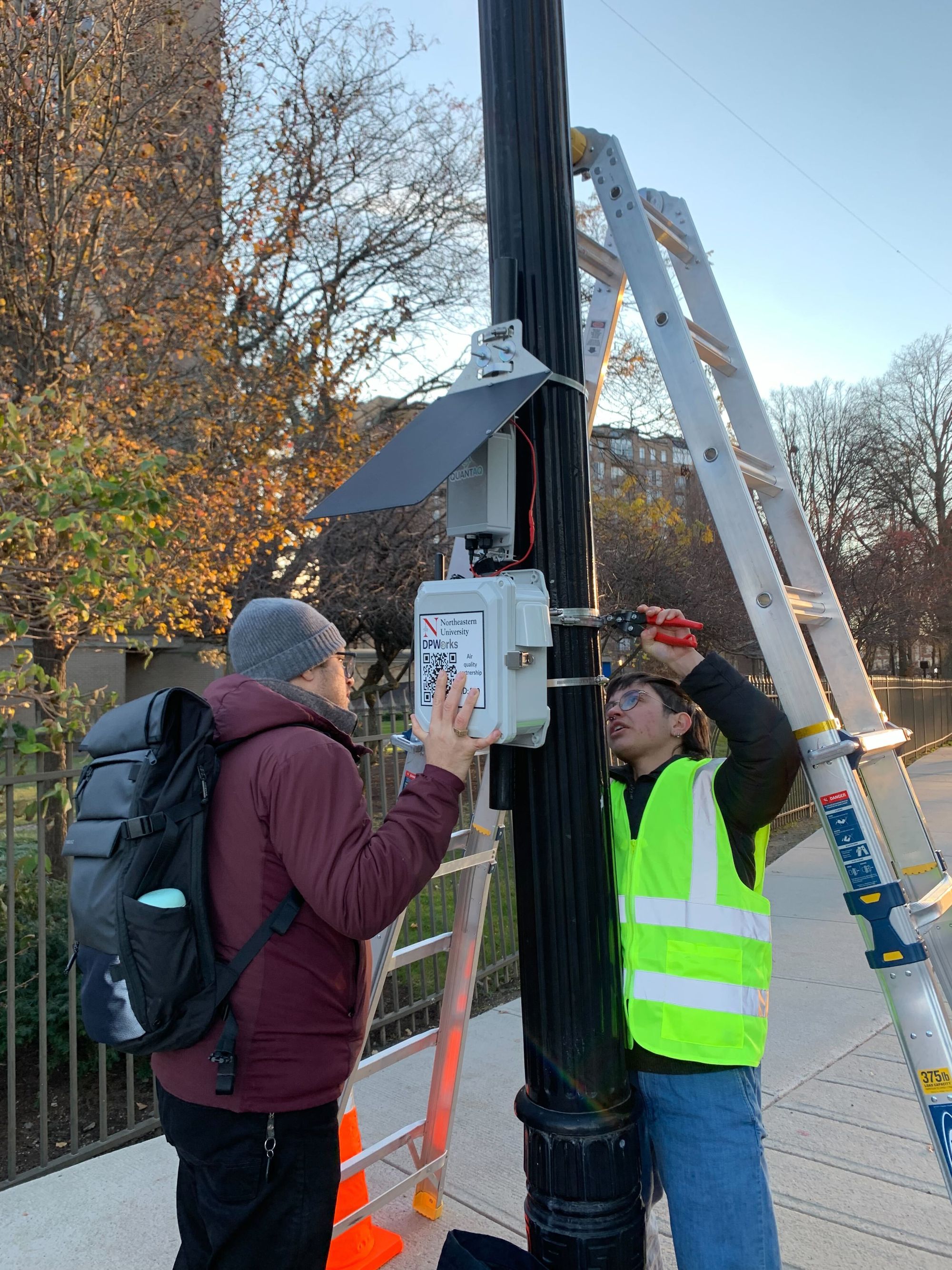Greater Boston is now host to one of the world’s most comprehensive air quality monitoring networks
Thanks to Northeastern University's latest Impact Engine, iSUPER, the Boston area is home to one of the most comprehensive air quality monitoring studies to date. Researchers will ultimately draw quantitative links between infrastructure decisions and local air pollution.

Just a few miles from our Somerville, Massachusetts headquarters, a long-term collaborative research endeavor is underway to re-envision how city planners and policy makers might understand the impact of infrastructure decisions with respect to urban air quality.
Part of the Northeastern University Impact Engine Program, the project is named Healthier Air and People: Intelligent Solutions to Urban Pollution for Equity and Resilience (iSUPER) and is led by Prof. Yang Zhang. iSUPER will combine QuantAQ sensor data, data from mobile monitors, and other public datasets together via new pollution prediction models to identify – and then hopefully help mitigate – urban air pollution hotspots. It will also create new ways for the broader community to get information and insight about neighborhood air quality on a block-by-block level.
More than 50 solar-powered MODULAIR sensors are currently collecting data across Brookline and Chelsea, Massachusetts. By Summer 2024, more than 150 sensors will be deployed to support community conversations, municipal project analysis, and university-based modeling and data analysis efforts by the iSUPER team.
Over time, the aim is to deliver predictive models that provide comprehensive maps of urban air quality with hyper-local accuracy, as well as tools that can provide similar maps for “what if” scenarios such as updating changing traffic flows along a specific road or adding or adding buildings in specific lots. This could mark a major improvement in quantitatively understanding the connections between infrastructure and impacts and working toward mitigation options.
Historically, decision-makers have only had access to regional rather than hyper-local air quality data, making it difficult to understand how changes in infrastructure decisions translate to on-the-ground, neighborhood-level pollution conditions. Connecting decisions and outcomes will mark a big step forward in managing air quality, a critical determinant of public health.
Dr. Amy Mueller of Northeastern University has been at the core of the cross-disciplinary team. She explains:
“Air is the connective component of cities - every urban planning or policy decision impacts it, but today we are missing a way to close the loop from action to impact. The ultimate goal of the Northeastern University impact engine, iSUPER, is to create tools to help decision-makers model and track the impact of actions as well as support individuals in understanding and responding to the environmental conditions where they live.”
The project, which involves a large interdisciplinary team at Northeastern in partnership with local municipalities and a number of community-based organizations, is intended to continue through at least 2028. This long-term analysis has the potential to help improve our understanding of how air quality responds to evolving neighborhoods, linking changes like new bus or bike lanes, traffic patterns, or buildings to the local air quality profile.

QuantAQ CEO and Co-Founder Dr. David Hagan adds: “We’re proud that the team at iSUPER selected QuantAQ over the many other options available. We are excited about the significant contributions this project will make to our shared understanding of air pollution, public health, and connected cities. We’re eager to work alongside this fantastic group of individuals and continuously improve the tools and methods for deploying large sensor networks in urban areas.”
The team from Northeastern University selected QuantAQ’s sensors for our demonstrated data accuracy across the various seasonal changes in Boston, dedication to customer support and ongoing data quality, and our organizational vision of supporting the future of sustainable and healthy cities.
To learn more and access real-time data from the project, head to iSUPER’s website.

